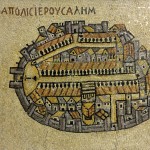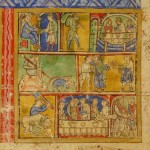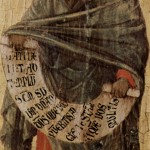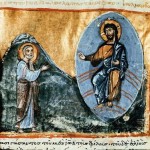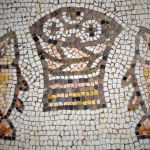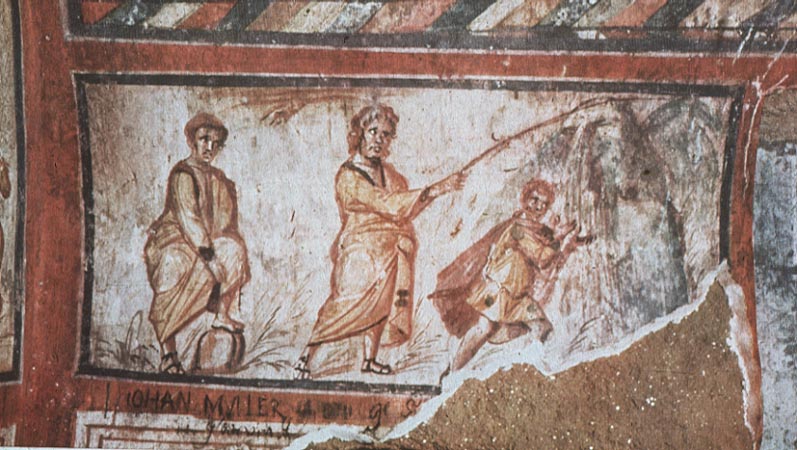
What It’s About: I see in this passage two major focus points: the present and the future. In the present, this passage is speaking to people have been decimated economically and socially, and it is inviting them into a kind of bounty that must have felt miraculous. In the future, it is pointing toward a covenantal relationship between the people and God, one that harkens back to and in some ways depends on David. These two dimensions, the present and the future, combine to produce a palpable hopefulness, in which God is seen as a deliverer and a provider, both now and into the days ahead.
What It’s Really About: This (and many other passages from the prophets) are, at a basic level, about social justice. They are about a kind of egalitarian plenty that covers everyone, even those who continue to transgress, who God will “abundantly pardon.” There are some who reject a social justice reading of the prophets and of the Hebrew Bible, but it seems clear to me, on a plain reading of the text, that even if ancient Israel wasn’t a hotbed of equality and common sharing for the common good, it certainly aspired to be. This passage is in stark contrast to the proof-texted, out-of-context nonsense of the prosperity gospel (buttressed in the Hebrew Bible by the so-called “Prayer of Jabez.”) This passage, and many more from the prophets, are not about how God wants you to be rich. It is about how God wants all people to flourish. And there is a dramatic difference between those things.
What It’s Not About: Each time the bible invokes a covenant, it’s striking how little the prior covenants come into view. Partly this is a function of how the book was composed; it is a compilation of many different writings from many different hands in many different times and places. So continuity errors are bound to happen; the bible had editors, but it didn’t have especially careful editors. But this passage brings up covenant without much sense that God has already made several covenants with the people. This short covenantal memory is a curious feature of the story. Does it somehow cover up for unfaithfulness, either on the part of God or the people?
Maybe You Should Think About: Not too many people want to preach social justice in an election season, lest they be accused of partisanship. But times of transition in modern politics are good times to reflect on times of transition in ancient politics, and that’s just what is in view here in Isaiah. Here’s a good question for a sermon: what would happen if a candidate ran on the platform of Isaiah 55:1-9? What would happen?
What It’s About: This is Paul’s reflections on Israel’s wilderness experience, which for him is a mixed bag. It is a story of deliverance and redemption, yes, but it is also a story of failure and unfaithfulness. Paul tells the story in a less triumphant way than he might have, and he leaves a lot of room for acknowledging human weakness. He then turns this telling of the story into an exhortation; we, he says, must do better.
What It’s Really About: There are a handful of passages about which I would like to quiz Paul, and this is one of them. When they get around to inventing a time machine, I’d like to find Paul and ask him about this one. This sounds really kind of anti-Jewish; he seems to be really down on the possibilities of faithfulness on the part of the Israelites. But we always have to remember that Paul’s writing was occasional and contextual, and that he never meant to write for us. He was writing for the Corinthians, and we have intercepted his mail. So it’s possible (probable, I think) that if he weren’t telling this story in the context of telling a group of morally troublesome people to shape up, he would tell it quite differently. I wish I could ask him about it.
What It’s Not About: Verse 10:13 is not supposed to be the key to the whole passage. I don’t think it unlocks great wisdom about the text, or serves to interpret the rest. I think it’s just a reiteration, perhaps in too-strong terms, of what he has said before. But in the evangelical circles of my youth, that’s the only verse that got repeated. That misses much of the depth and texture of the passage, I think. And that clause about God not testing you beyond your limits is the source of a great deal of bad theology and bad pastoral care. “God won’t give you anything you can’t handle” is one of the most facile and troublesome truisms in contemporary Christianity, and everybody should stop saying it.
Maybe You Should Think About: What is the lesson Paul wants us (well, not us…the Corinthians) to draw from the experience of Israel in the wilderness? Perseverance? Faithfulness? Adherence to truth? Focus on that, and leave the rest alone.
What It’s About: I love this passage, because it kind of reads like the front page of the newspaper in the year 30. There is an oblique reference to Pilate having killed some people; we don’t know anything else about it, except that it does kind of sound like something Pilate would do. And there is a reference to the collapse of a tower, the tower of Siloam, which killed 18 people. This collapse is also unknown to history aside from this mention in Luke. Meanwhile, a parable about a fig tree seems at first to be unconnected, but the more you look at it the more sense it makes.
What It’s Really About: This is really about why bad things happen. That’s one of the central questions any religious system will have to deal with, and here the question is posed in terms of those calamities (Pilate’s killing of Galileans and the collapse of the tower of Siloam), and what reason might underly them. Were the people killed in those incidents worse sinners than everyone else, and perhaps that accounts for their demise? Jesus’ answer is a little bit unsatisfying: no, they weren’t worse than everyone else, but we can all expect the same fate anyway, unless we repent. This is a little bit of a mixed message: their deaths weren’t due to any particularly egregious sinfulness on their part, but nevertheless we are at risk of death if we do not repent of our own sin. So does sin cause death, or not? Here, as elsewhere in the bible, it’s murky.
What It’s Not About: The fig tree parable helps to interpret this section. This is an unfruitful fig tree, and remember that we (the hearer/reader) have just been told that we should repent, suggesting that we too are unfruitful. It is not, though, immediately cut down. Instead, it is given one more year, with some fertilizer, to see if it can bear fruit. Entire sermons could be written about the “manure” (NRSV) that is put around the tree, and what that might look like. But in any event, this is an apocalyptic kind of thing to say; the chances are running out.
Maybe You Should Think About: How can we put this passage into conversation with the Isaiah passage above? In that one, God is handing out second chances and making covenants in the rubble of past ones. Here, though, in Luke, Jesus seems patient–but only to a point. This ought to trouble our old false dichotomy about a vengeful God of the Old Testament and a gracious God of the New Testament, for starters. But it should also cause us to ask what the nature of God is, generally. Is God the manure-spreading type, or the chopping type?

